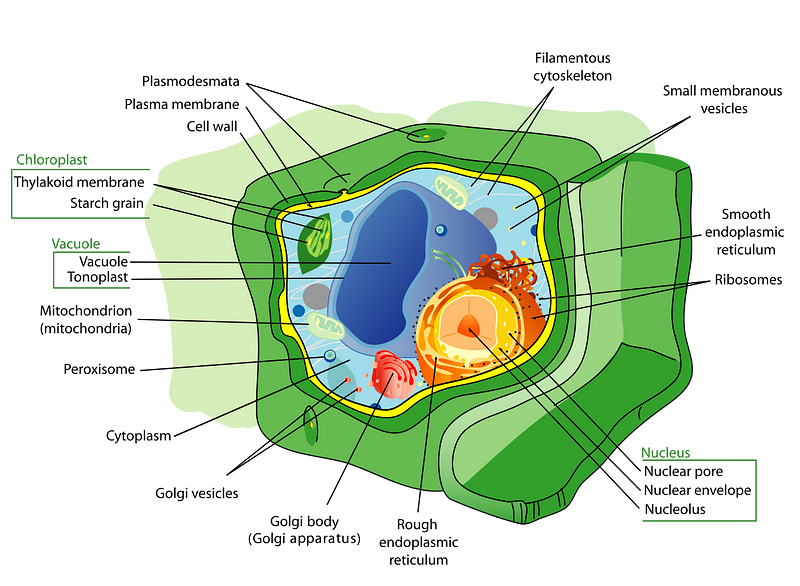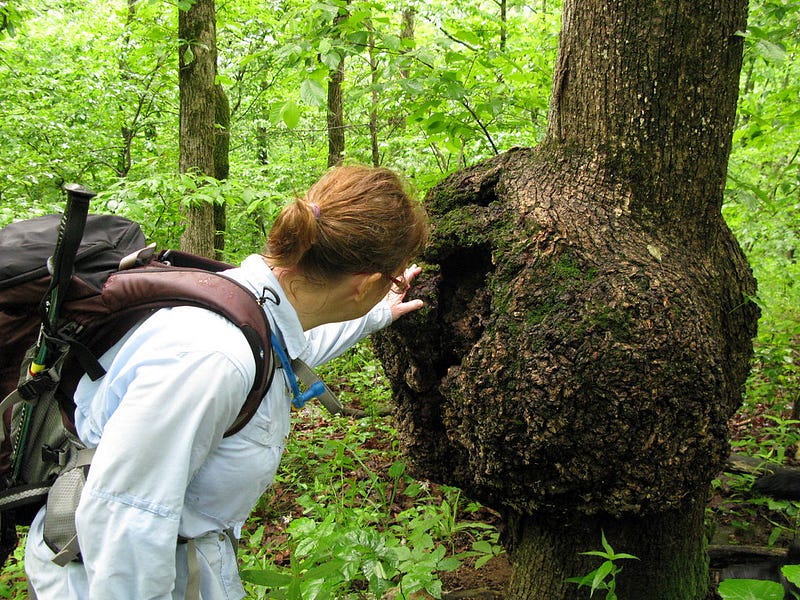The Curious Case of Cancer in Plants: Can They Really Get It?
Written on
Understanding Plant Longevity and Cancer
Plants bask in sunlight without any protective cream, and some trees can live for millennia. So, what prevents them from developing cancer?

If a plant could smoke, would it develop cancer in its leaves? This question arises as we ponder the inevitability of cancer in living beings. Humans and animals, including our pets, frequently face cancer risks as they age. Yet, plants seem to defy this fate. How is it possible for a tree to thrive for centuries without falling victim to the same affliction that often affects humans within a century? What exactly is cancer?
What Exactly Is Cancer?
Cancer arises from the unchecked growth of abnormal cells within an organism. These cells are not foreign; rather, they are our own cells that have turned rogue due to errors accumulating in their genetic instructions.
As we grow older, our cells accumulate more mutations in their DNA — the genetic blueprint for our bodies. These mutations can result from errors during DNA replication or from external factors like free radicals and UV radiation.
Typically, cells with excessive mutations undergo apoptosis, a process where they self-destruct. However, sometimes these errors lead to a malfunction in the cell’s growth regulation, causing it to grow uncontrollably.
Imagine a robot that has gone haywire; it continues to follow faulty programming that no longer serves its purpose. Similarly, cancerous cells attempt to adhere to their distorted instructions, leading to uncontrolled growth that can be detrimental to the host.
Unwanted cell proliferation leads to the formation of tumors. Some tumors grow slowly and remain localized (benign), while others, known as malignant tumors, consist of aggressive cells capable of spreading through the bloodstream to other parts of the body in a process called metastasis.
Why Don’t Plants Face This Threat?
One of the most alarming aspects of cancer is its ability to spread. In animals, the bloodstream acts as a highway for cancer cells, allowing them to invade distant tissues. However, plant cells are far less mobile. Each cell is surrounded by a rigid cell wall, which provides structural integrity but also confines the cells, preventing them from migrating throughout the plant.

Plants do have a circulatory system, but it primarily functions to transport water from roots to leaves, rather than facilitating the movement of immune or blood cells as in animals.
Additionally, the internal architecture of plants is much simpler. They lack complex organs and possess less specialized cells. This allows plants to regenerate almost any part; hence, they can grow roots from cuttings even when they lack an established root system.
While plants can develop tumors, often due to infections from bacteria, viruses, or fungi, these tumors generally do not spread throughout the organism. Instead, plants adapt and grow around these tumors, much like they would navigate around an obstacle in the soil. Although a tumor may persist for years, it remains localized, devoid of metastasis.

In conclusion, plants can indeed develop cancer, but due to their rigid cell walls and lack of complex organ systems, a cancerous tumor is often more of a nuisance than a fatal threat. Their ability to grow around obstacles helps mitigate the effects of any developing tumors.
Dr. Sam Westreich, an expert in genetics with a focus on the gut-associated microbiome, currently contributes to a bioinformatics startup in Silicon Valley.
Follow on Twitter at @swestreich.
Exploring Plant Cancer Further
Dive into the fascinating topic of whether plants can get cancer in this informative video.
Additional Insights on Plant Cancer
Discover more about plant cancer and other intriguing scientific concepts in this engaging video for kids and educators.